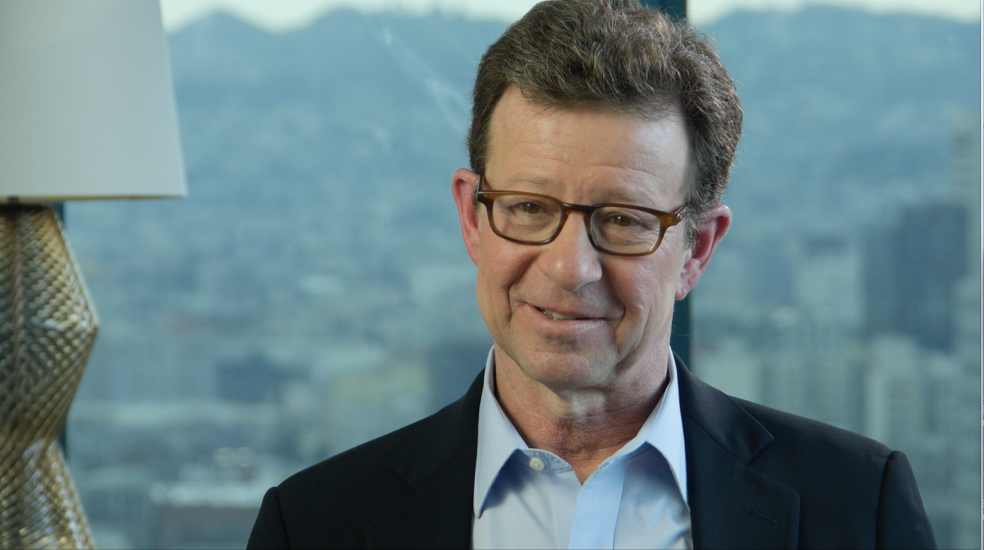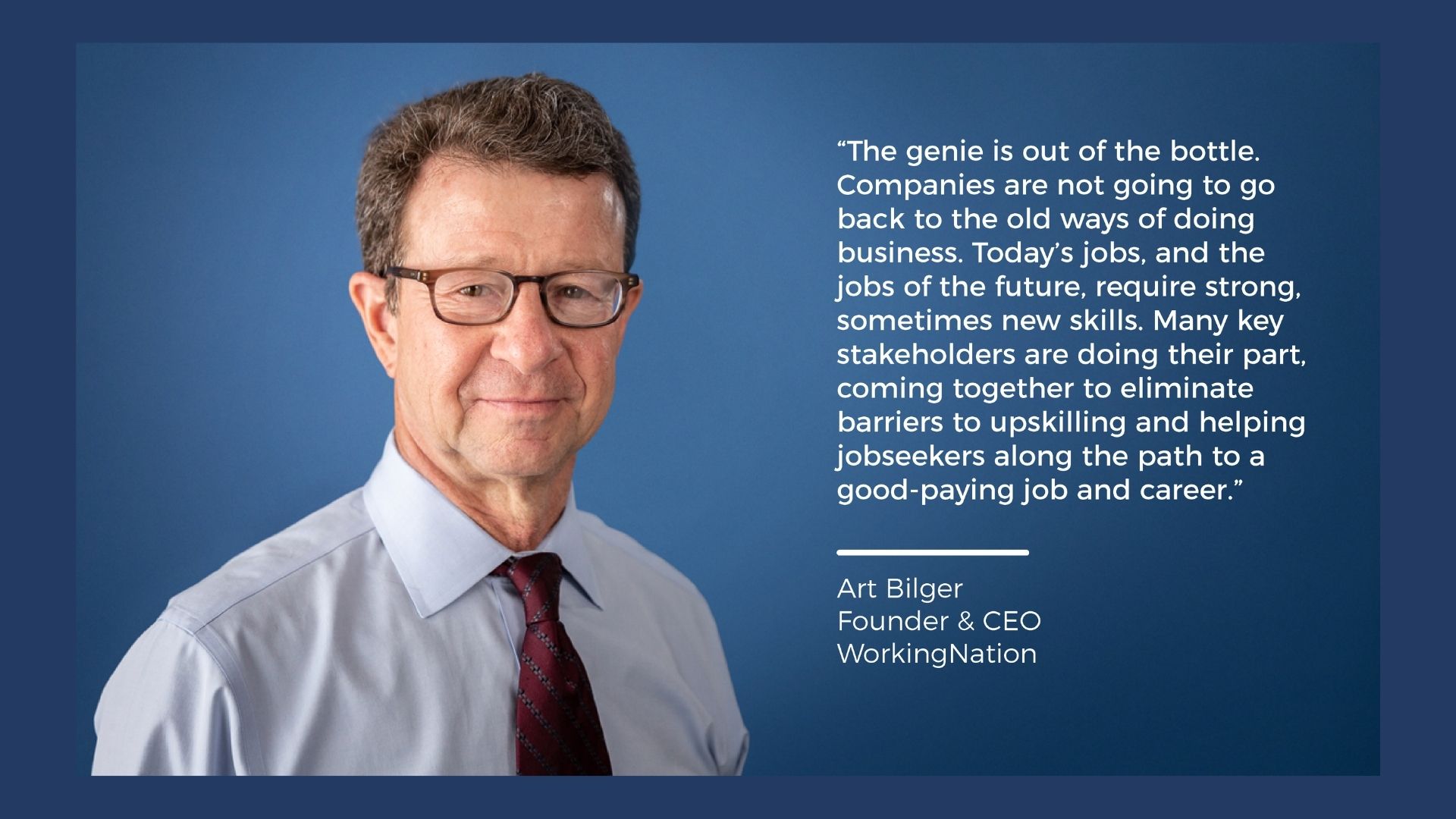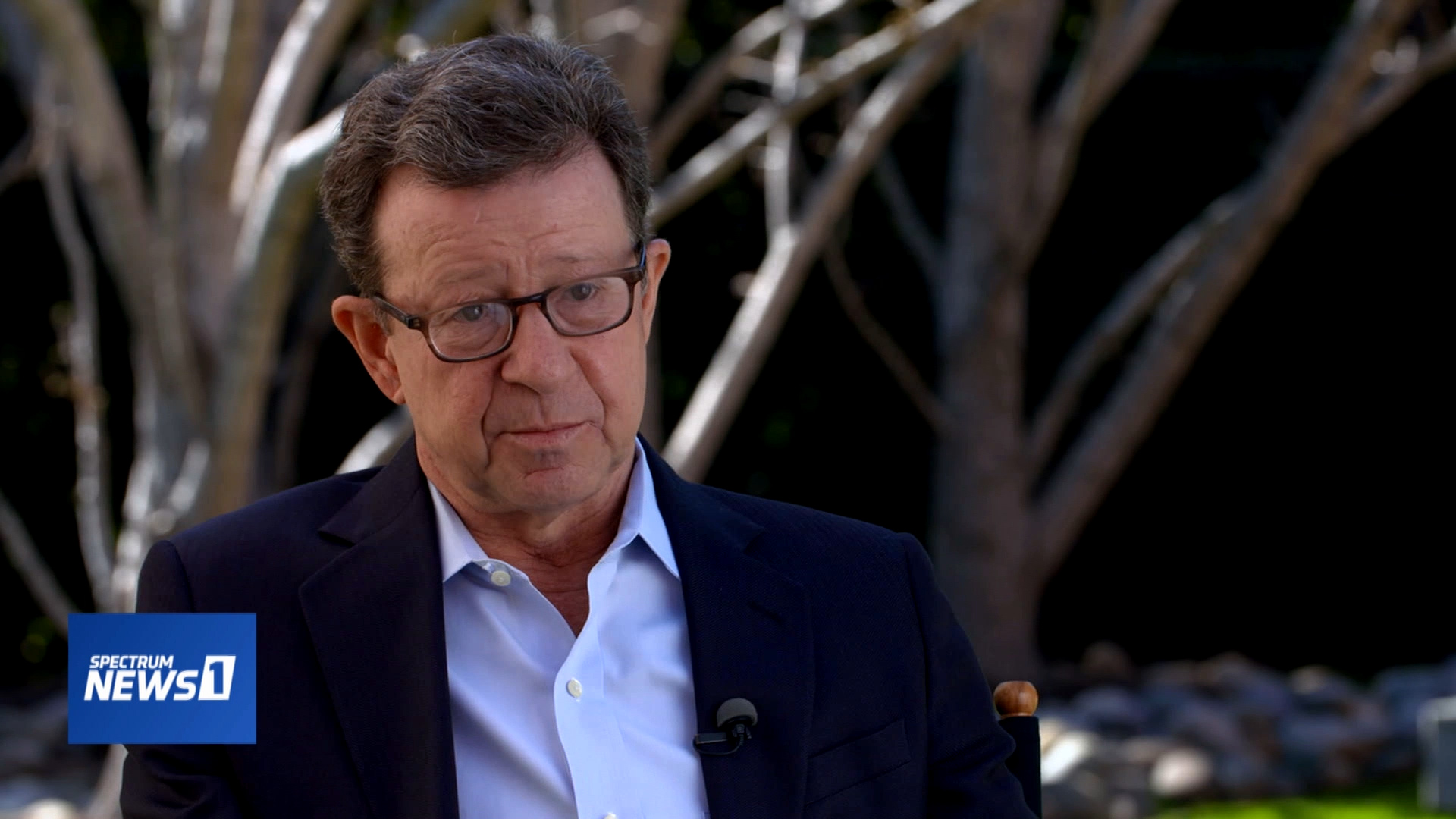When we posted a link to our story, Latest Jobs Report: On the Rise, But Many Workers Being Left Behind, on our Facebook page, a Facebook follower started a conversation.
He commented by asking us, “How does an organization like yours lead the way to help create public policies that facilitate education pathways?”
Though we’re not focusing on affecting policy changes at a federal level, WorkingNation does hope that our innovative storytelling starts a national conversation about scalable solutions and helps keep America working through the employment challenges that face our country. So we took that question directly to Art Bilger, WorkingNation’s Founder and CEO.
Art says one of the key ways to lead in inspiring the creation of policy that facilitates education is by regularly “stepping back and identifying issues with a willingness to look at the issues in different ways than the standard ways of looking at them.”
Art maintains that in the “standard of processing information right now, we are all bombarded with information on a moment by moment basis. This way of processing these challenges has an impact on how one can look at these issues, but how we digest them at WorkingNation is the key to seeing solutions.”
Another key component to leading the way to solutions, Art believes, is that “it’s important to regularly bring a range of different thought leaders with varying mentalities and different backgrounds around the table. To regularly hold discussions with people who think alike doesn’t always move in the direction of solutions. If you take a look at what we’ve done with the discussions we’ve hosted, you’ll see that diversity in background and perspectives contributes to changing the conversation and forming solutions.”
WATCH: WorkingNation’s Take a Seat at the Table
From a more practical standpoint, Art says that solutions are formed by the “unique approach WorkingNation is taking via storytelling. While conferences and roundtables are one thing, so often you’re talking to a reasonably small group of people who are fairly like-minded. To really change policy, you want to touch a broad spectrum. And we do that with our storytelling.”
WATCH: WorkingNation’s Slope of the Curve
“If you look at the last election, and the various policy changes that have taken place since, the changes are not so much coming from places like Rand Corporation and The American Enterprise Institute coming up with ideas,” Art maintains, “changes are coming from groups of people, like the groups that [President] Donald Trump and Bernie Sanders built through communicating with the masses. Changes and solutions come from talking to a variety of real people. When you look at cities, and their mayors and the people who get things done, it’s because they are talking to a broader mix of people, and ultimately educating others and telling their stories.”
Sen. Ben Sasse (R-Neb.) seems to agree. Appearing on MSNBC’s “Morning Joe” Feb. 9, Sasse argued that a more constructive vision for tackling the current disruption of jobs and the economy would be for Washington to only do a small number of things which would create a “framework for liberty” so local governments, business, schools, and communities can implement a plan that works best for them.
Join the conversation on our Facebook page by commenting on the post below.
https://www.facebook.com/workingnation/posts/1833508386888513
For more information on the Future of Work, click here.











